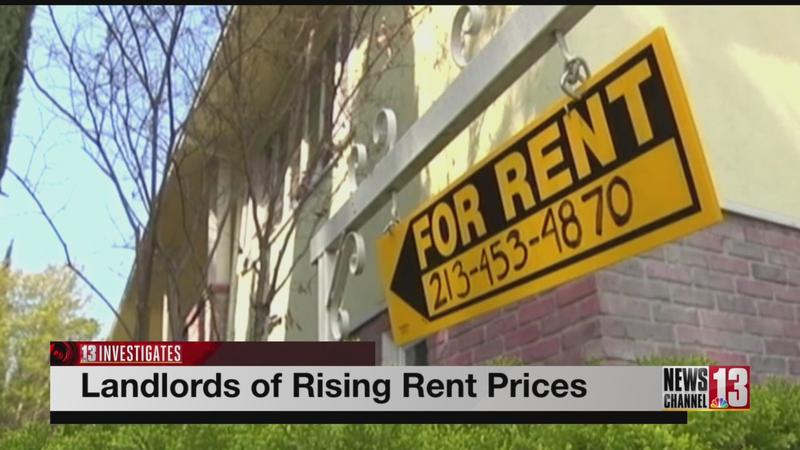Landlords give their side as rent prices drastically rise
For the past week, 13 Investigates has been reporting skyrocketing rent prices and a bill that could give tenants more protection from evictions. Now our team is hearing from the other side: from landlords.
Landlords say the Good Cause Eviction Bill would be bad for both the tenants and landlords.
Essentially, the bill ensures a tenant cannot be evicted or be hit with a huge rent increase unless there is a justifiable reason.
Ideal Legal Support Services Inc., a group that represents about 1,300 landlords in the Capital Region, said it is going to add to the already difficult process to remove a bad tenant. That could end up hurting good tenants, by having to live next to a bad neighbor who is potentially disruptive.
The application process could also become meticulous. If a landlord does not have much power to remove a bad tenant, they will have to be even more selective in choosing who gets to live in their building.

Matthew Lyman, with Ideal Legal, said you’ll see a lot of the small, local landlords leave the industry. That means bigger corporate companies could come in and replace them, and rent prices can continue to go up.
"Small landlords are going to go bye-bye because they can’t keep up. The big landlords are going to come in," he said. "We as landlords are willing to work together, but it does not seem to work that way."
Even after Tuesday’s protest at the New York State Capitol to get lawmakers’ attention to make this a law, this bill has not moved for months in both the Senate and the Assembly.
Landlords are also raising rent because they are trying to catch up with how much money they lost during the pandemic.
Inflation is also another reason they are citing.
Some landlords and property managers tell 13 Investigates that during the height of COVID, late and missed rent alone was affecting 25% to 30% of owners. For example, most landlords did no rent increases during COVID out of fear that a tenant wouldn’t pay and then couldn’t be evicted.
Each non-paying tenant, that could not be evicted during the New York state moratorium, averaged more than $10,000 in lost rent that was being pursued.
13 Investigates is also told countless landlords have not been able to sell their properties due to non-paying tenants. They have incurred excessive damage because the tenants weren’t able to be evicted.
As for ERAP, Emergency Rental Assistance Program, landlords say it did not provide enough help to landlords. It provided relief but fell short in terms of how long it took to be launched, the process it takes and the follow-up.